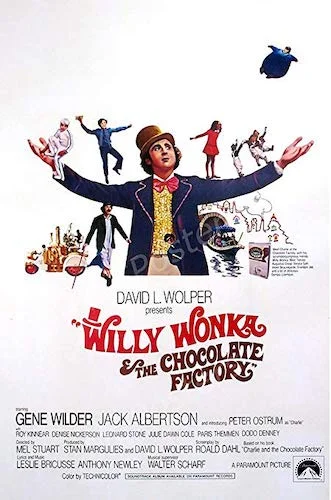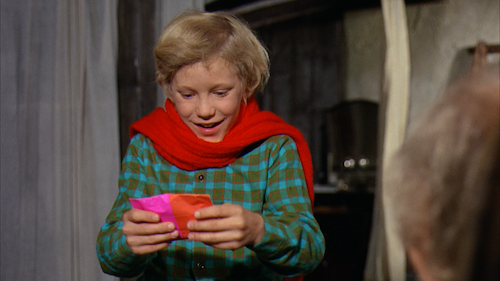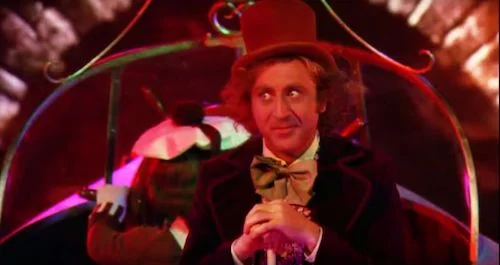National Kids Day: Willy Wonka and the Chocolate Factory
As part of National Kids & Pets Day, we decided finding nostalgic childhood films was a bit easier than combining both themes. We are taking this opportunity to review ten films that have been deemed staples of the youths of varying generations. This article looks at Willy Wonka and the Chocolate Factory.
Viewing this film as an adult, I have to admit that I adore how little of the story actually takes place in the titular chocolate factory. Sure, it's around half the film, but consider that for a second. We do not see Willy Wonka until over forty minutes in. What kind of film would hold that level of restraint nowadays? The mystery surrounding Wonka is well kept through patience, and thorough narrative stirring (as if the film were a confectionery recipe).
Willy Wonka and the Chocolate Factory is indeed a work that performs through its two starkly different halves. The first is slow, cautious, and intelligent. Charlie Bucket is a suffering child from a poor family, who still unselfishly puts others first. The build up to the revelation of the five golden ticket recipients (chances to visit the Chocolate Factory and win unlimited chocolate from Wonka himself) is contained. Bit by bit, we see Charlie lose hope. The winners don't all come at once. They slowly get revealed. We feel as though we ourselves are missing out.
There are occasional oddities here, perhaps to not leap into the second half too blindly. This includes a wife willing to give up her kidnapped husband for the last box of Wonka bars (who we never ever hear from again). Otherwise, the opening half is charming, heartfelt, and sincere. The visit to the candy store will make any of us feel like kids again.
Charlie Bucket near the start of the film.
The leading into the less-cohesive second half makes sense. We see a rival candy creator somehow bump into Charlie Bucket when he wins (it makes sense that he made it to the other winners if the media located them: how did he know Charlie won when it was just revealed in person?). There's also the fact that Charlie found his ticket literally the day before the factory doors would open. Does that mean there would be a vacant spot if the final ticket wasn't found? We can't blame the politician that lied about having the ticket. The admission date is on the actual ticket. Outside factors would have no relevancy here.
And so begins the second half of the film: one that is magnificently bonkers, but narratively lacking, especially compared to part one. All of the nonsense in the chocolate factory is terrific. As a kid, that's all that matters. Who care if Charlie and Grandpa Joe breaking the rules for literally no reason doesn't make sense? The floating scene is exciting! Why does it matter that we don't see the aftermaths of the bad children getting their comeuppance? We can just shrug it off hilariously like Wonka himself.
The gorgeous (and delicious) factory.
Gene Wilder's sarcastic fountain-of-insults is a major reason why we keep watching. His inventive introduction to the character (a limp that turns into a somersault) keeps us on our toes. His tunnel sequence freak out is as unhinged as it could be (before turning into stupidity). Wilder naturally reacting to the world around him (mushroom umbrellas, half-magnifying-glasses, and edible floral tea cups) is the extra kick. This isn't acting. This I'd a mad man. Johnny Depp might have been closer to the Wonka Roald Dahl created in the original book (in Tim Burton's Charlie and the Chocolate Factory), but Wilder reinvented the part.
Gene Wilder as the dry, delirious Wonka.
Due to Wilder and the effort put into the special effects, it is hard to even be mad at Willy Wonka. The music is also especially noteworthy (with Pure Imagination being one of the great original songs in cinematic history). By the time we are flying in the sky, narrative-shmarrative. Dahl famously denounced the film, and the adult side of us can see why. The story takes a nose dive to allow the film to really be Wonka's (the title of the film doesn't even hide this). The guy's in just over half the film! As a child, this is a touching tale that zips through absurdity like it's a stroll in the park. For nostalgic reasons, Willy Wonka is still a candy coated shangri-la worth revisiting. Just don't expect all of it to make sense (even the parts that should).
Andreas Babiolakis has a Masters degree in Film and Photography Preservation and Collections management from Ryerson University, as well as a Bachelors degree in Cinema Studies from York University. His favourite times of year are the Criterion Collection flash sales and the annual Toronto International Film Festival.







